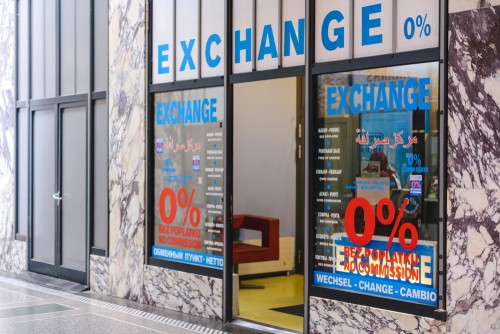The foreign exchange market is a 24-hour non-stop market. The most obvious difference from other trading markets is the continuity of time and the non-binding in space!
Our Forex Signals
1 - month
Subscription
 Up to 15 signals daily
Up to 15 signals daily 76% success rate
76% success rate Entry, take profit & stop loss
Entry, take profit & stop loss Amount to risk per trade
Amount to risk per trade Risk reward ratio
Risk reward ratiomonth
3 - month
Subscription
 Up to 15 signals daily
Up to 15 signals daily 76% success rate
76% success rate Entry, take profit & stop loss
Entry, take profit & stop loss Amount to risk per trade
Amount to risk per trade Risk reward ratio
Risk reward ratiomonth
 Most popular
Most popular
6 - month
Subscription
 Up to 15 signals daily
Up to 15 signals daily 76% success rate
76% success rate Entry, take profit & stop loss
Entry, take profit & stop loss Amount to risk per trade
Amount to risk per trade Risk reward ratio
Risk reward ratiomonth
Lifetime
Subscription
 Up to 15 signals daily
Up to 15 signals daily 76% success rate
76% success rate Entry, take profit & stop loss
Entry, take profit & stop loss Amount to risk per trade
Amount to risk per trade Risk reward ratio
Risk reward ratioSeparate Swing Trading Group
 Up to 3 signals weekly
Up to 3 signals weekly 76% success rate
76% success rate Entry, take profit & stop loss
Entry, take profit & stop loss Amount to risk per trade
Amount to risk per trade Risk reward ratio
Risk reward ratiomonth
1 - month
Subscription
 Up to 15 signals daily
Up to 15 signals daily 76% success rate
76% success rate Entry, take profit & stop loss
Entry, take profit & stop loss Amount to risk per trade
Amount to risk per trade Risk reward ratio
Risk reward ratiotime
The 24-hour openness of the foreign exchange market gives traders a number of unique advantages that are not available in other markets.
3
Payment methods
Trading platforms
Regulated by
Support
Min.Deposit
Leverage max
Currency Pairs
Classification
Mobile App
Min.Deposit
$100
Spread min.
Variables pips
Leverage max
100
Currency Pairs
40
Trading platforms
Funding Methods





Regulated by
FCA
What you can trade
Forex
Indices
Actions
Cryptocurrencies
Raw Materials
Average spread
EUR/GBP
-
EUR/USD
-
EUR/JPY
0.3
EUR/CHF
0.2
GBP/USD
0.0
GBP/JPY
0.1
GBP/CHF
0.3
USD/JPY
-
USD/CHF
0.2
CHF/JPY
0.3
Additional Fee
Continuous rate
Variables
Conversión
Variables pips
Regulation
Yes
FCA
No
CYSEC
No
ASIC
No
CFTC
No
NFA
No
BAFIN
No
CMA
No
SCB
No
DFSA
No
CBFSAI
No
BVIFSC
No
FSCA
No
FSA
No
FFAJ
No
ADGM
No
FRSA
71% of retail investor accounts lose money when trading CFDs with this provider.
Min.Deposit
$100
Spread min.
- pips
Leverage max
400
Currency Pairs
50
Trading platforms
Funding Methods




Regulated by
CYSECASICCBFSAIBVIFSCFSCAFSAFFAJADGMFRSA
What you can trade
Forex
Indices
Actions
Cryptocurrencies
Raw Materials
Etfs
Average spread
EUR/GBP
1
EUR/USD
0.9
EUR/JPY
1
EUR/CHF
1
GBP/USD
1
GBP/JPY
1
GBP/CHF
1
USD/JPY
-
USD/CHF
1
CHF/JPY
1
Additional Fee
Continuous rate
-
Conversión
- pips
Regulation
No
FCA
Yes
CYSEC
Yes
ASIC
No
CFTC
No
NFA
No
BAFIN
No
CMA
No
SCB
No
DFSA
Yes
CBFSAI
Yes
BVIFSC
Yes
FSCA
Yes
FSA
Yes
FFAJ
Yes
ADGM
Yes
FRSA
71% of retail investor accounts lose money when trading CFDs with this provider.
Min.Deposit
$50
Spread min.
- pips
Leverage max
500
Currency Pairs
40
Trading platforms
Funding Methods




What you can trade
Forex
Indices
Actions
Raw Materials
Average spread
EUR/GBP
-
EUR/USD
-
EUR/JPY
-
EUR/CHF
-
GBP/USD
-
GBP/JPY
-
GBP/CHF
-
USD/JPY
-
USD/CHF
-
CHF/JPY
-
Additional Fee
Continuous rate
-
Conversión
- pips
Regulation
No
FCA
No
CYSEC
No
ASIC
No
CFTC
No
NFA
No
BAFIN
No
CMA
No
SCB
No
DFSA
No
CBFSAI
No
BVIFSC
No
FSCA
No
FSA
No
FFAJ
No
ADGM
No
FRSA
71% of retail investor accounts lose money when trading CFDs with this provider.

The fact that the foreign exchange market does not close within a week means that traders can adjust their positions at any time based on upcoming risks and opportunities, and trade when they coincide at different trading hours to obtain more profit opportunities.
Forex trading time is generally divided into four phases: Sydney, Tokyo, London/Europe, and New York.
Traders can arrange their own trading hours according to their own schedule. Similarly, when there are major events in the global market, or there is a significant overnight news, Forex traders can also close out at any time, or buy at any time.
This is very different from the traders who trade stocks: when the stock market changes or because of the impact of large events, they can only stand by, and the foreign exchange traders can close the position to reduce the risk without waiting for the opening.
Perhaps the word “money never sleeps” was created by the foreign exchange market. The foreign exchange market is made up of a global network of interconnected banks that provides 24-hour trading opportunities.
This means that for any trader, trading an interest rate decision at 12 o’clock in Australia is as simple as trading a rate decision at 2 pm New York time.
This gives the foreign exchange market a unique advantage over the stock market.
Time overlap in the Forex market
The Forex market is the largest financial market in the world, with a daily trading volume of up to $ 2 trillion.
To become a successful forex trader, one must carefully study all the important aspects of the foreign exchange market, including the forex trading hours. But what exactly are the trading hours or trading sessions?
These are those hours during which market participants have the opportunity to trade the various Forex pairs.

It is no secret that the FX market can be traded 24 hours, 5 days a week. The international currency market is mainly composed of banks, various companies, central banks, hedge funds, and investment firms. Furthermore, smaller Forex brokers and private investors also participate.
Since the FX market operates in various time zones, it is possible to trade it almost always. Moreover, the market is not dependent on a single stock market but consists of a global network of exchanges and brokers.
The aforementioned trading hours refer to the times when the market is open in most of the participating countries. It is believed that when one big FX market closes, another one just opens.
It is important to know the times when the market is most active. For example, the New York Session takes place from 08:00 to 17:00 EST, Tokyo 19:00 to 04:00 EST, Sydney from 17:00 to 02:00 EST, and London from 3:00 to 12:00 EST.
The largest volume of trades takes place at times when the international sessions overlap.
The Forex trading hours
As mentioned earlier, one of the most attractive features of the Forex market is that it is open 24 hours. This allows investors around the globe to trade during normal business hours, i.e., after work or at night.
Nevertheless – not all times open up the same opportunities for the traders. There are trading periods when prices are constantly volatile but also periods when they are almost at a standstill.
Many currency pairs have varying activity during a trading day. This circumstance can be attributed to the demographics of the respective market participants.
Even if a 24-hour market offers a significant advantage to many individual and institutional traders, it still carries some risks that should not be underestimated.
Although different currencies can be traded at any time, a trader cannot continuously monitor a position.
As a result, there are times when opportunities cannot be exploited or worse when the market moves against a set order.
To minimize such risks, the trader must be aware of when the market has the highest volatility and infer, which trading hours best fit his trading plan.
Typically, the market is divided into three primary trading sessions with the highest levels of activity: the Asian, European, and North American trading sessions.
More commonly known as Tokyo, London, and the New York Session, these are the centers of the financial industry on each continent.
Markets are the most active during these three windows, with the majority of banks and companies doing their daily transactions during these trading hours. In addition, a larger number of speculators are online during peak times.


